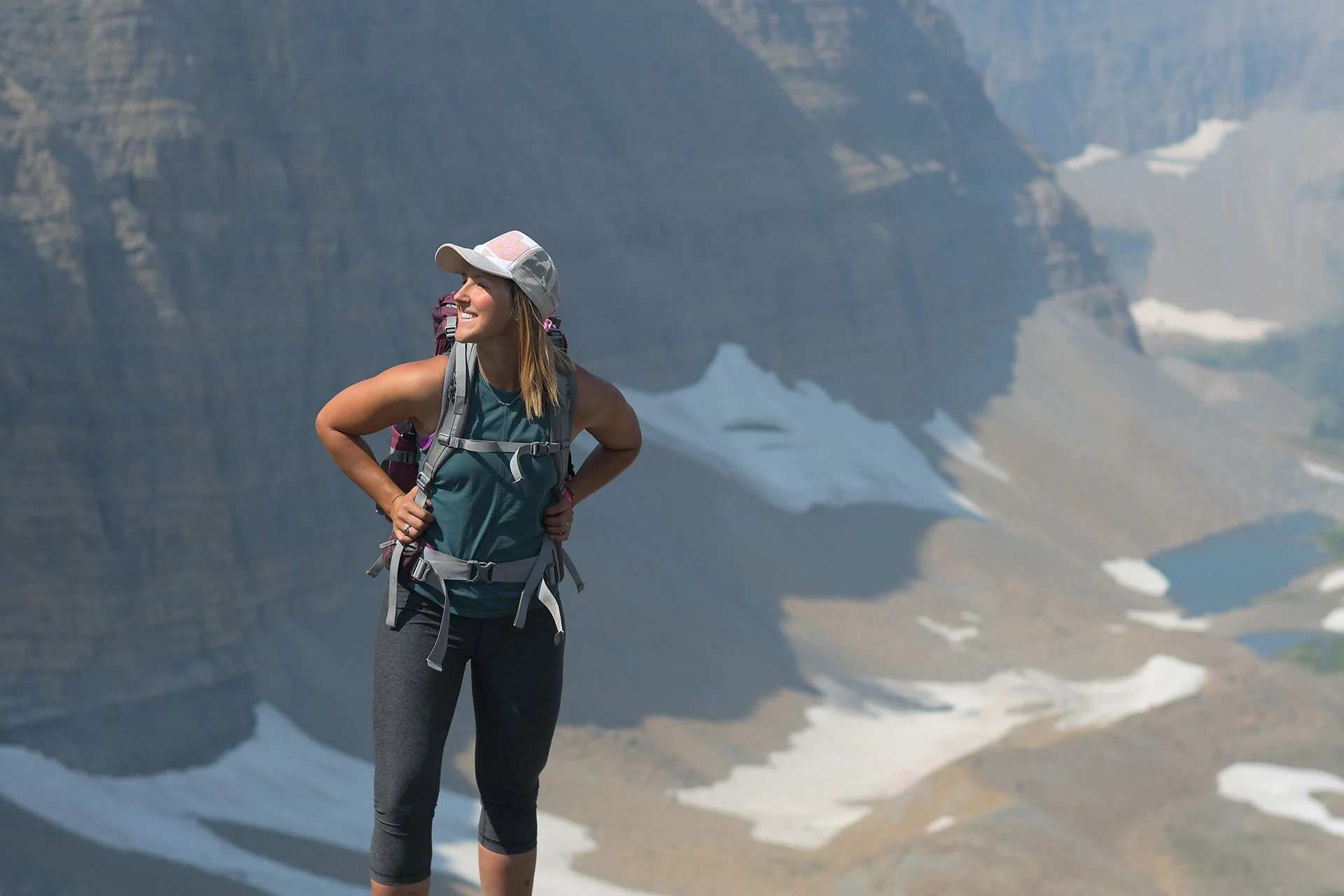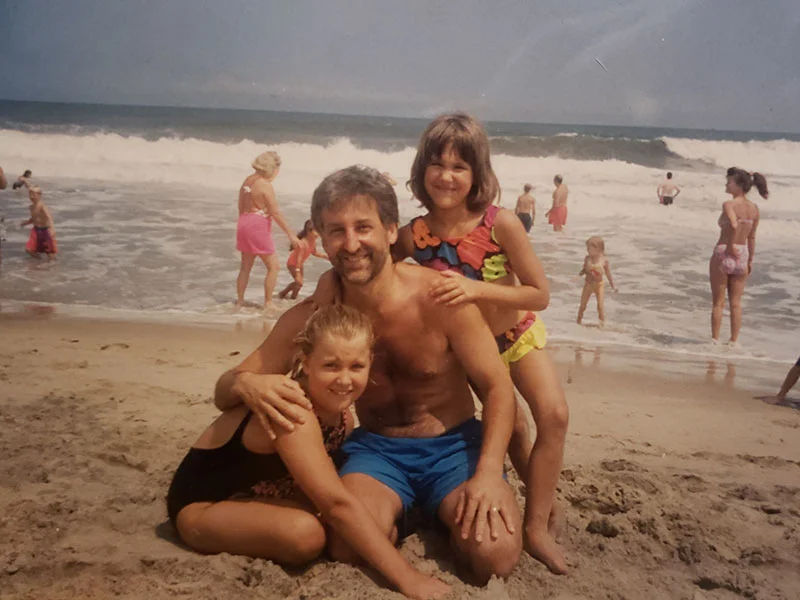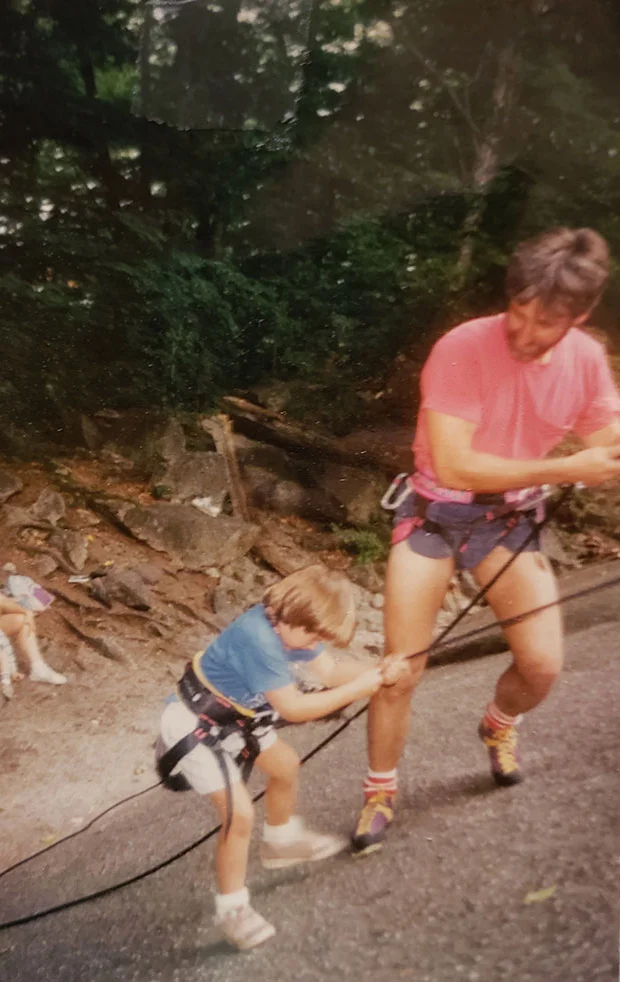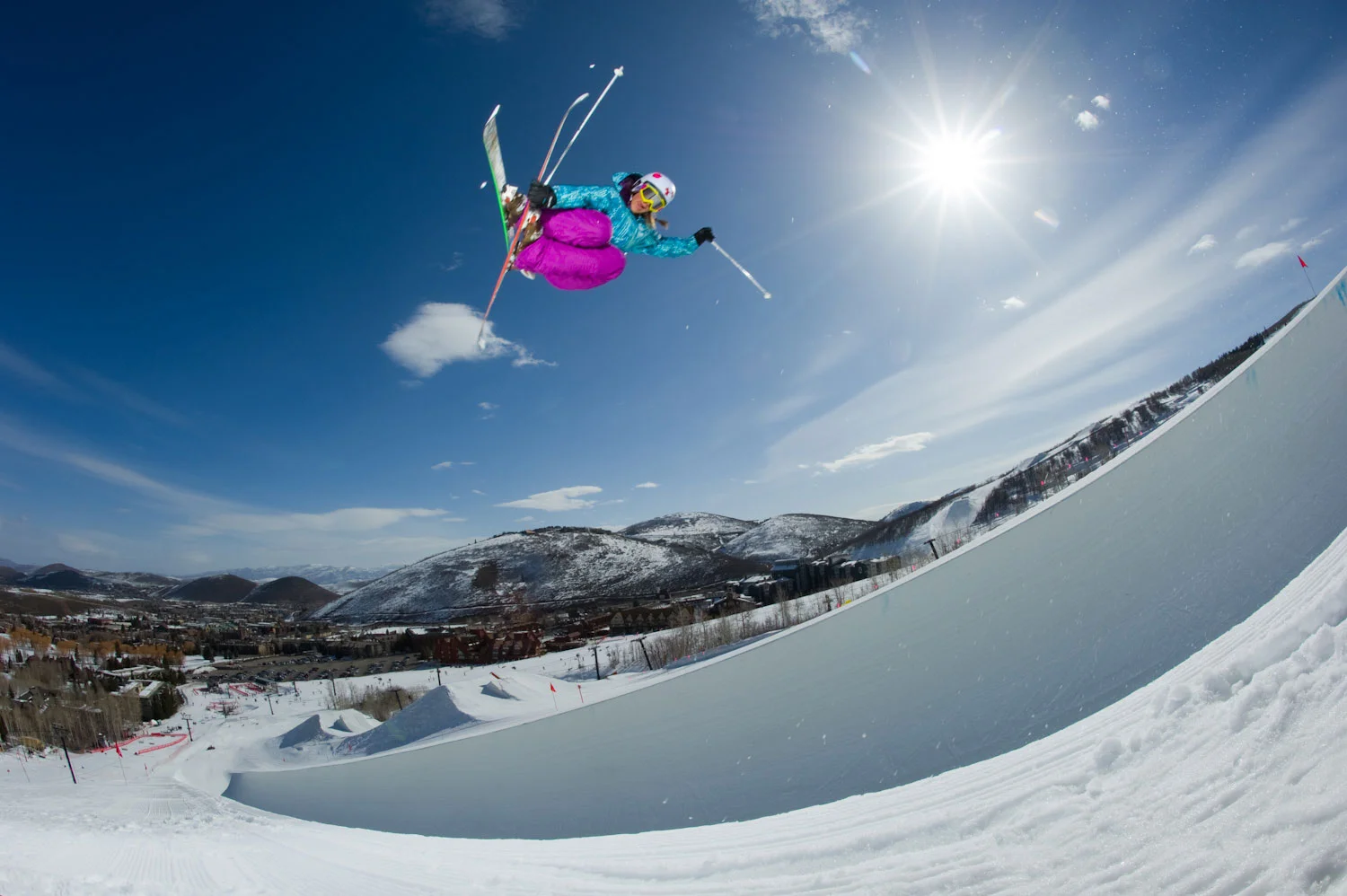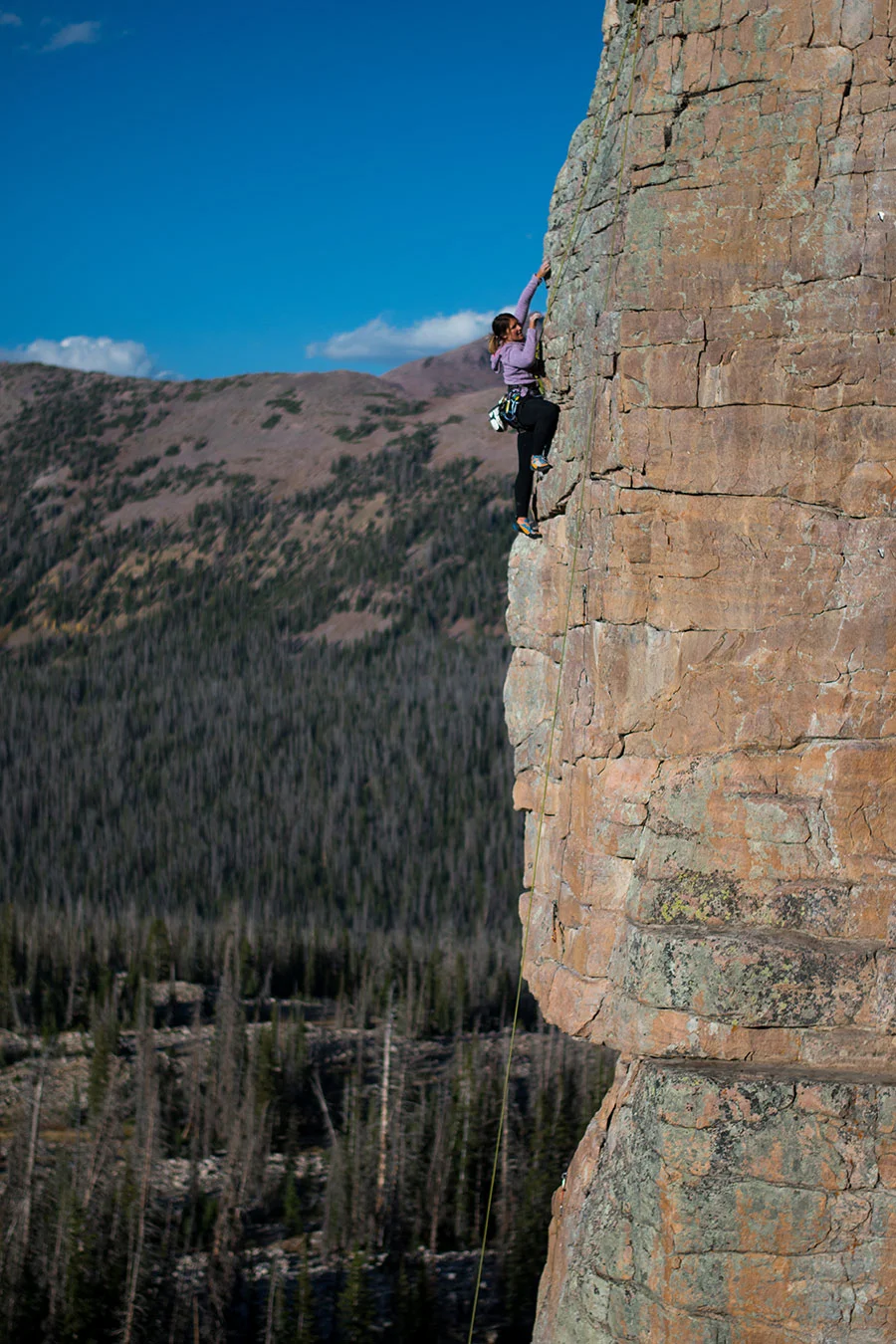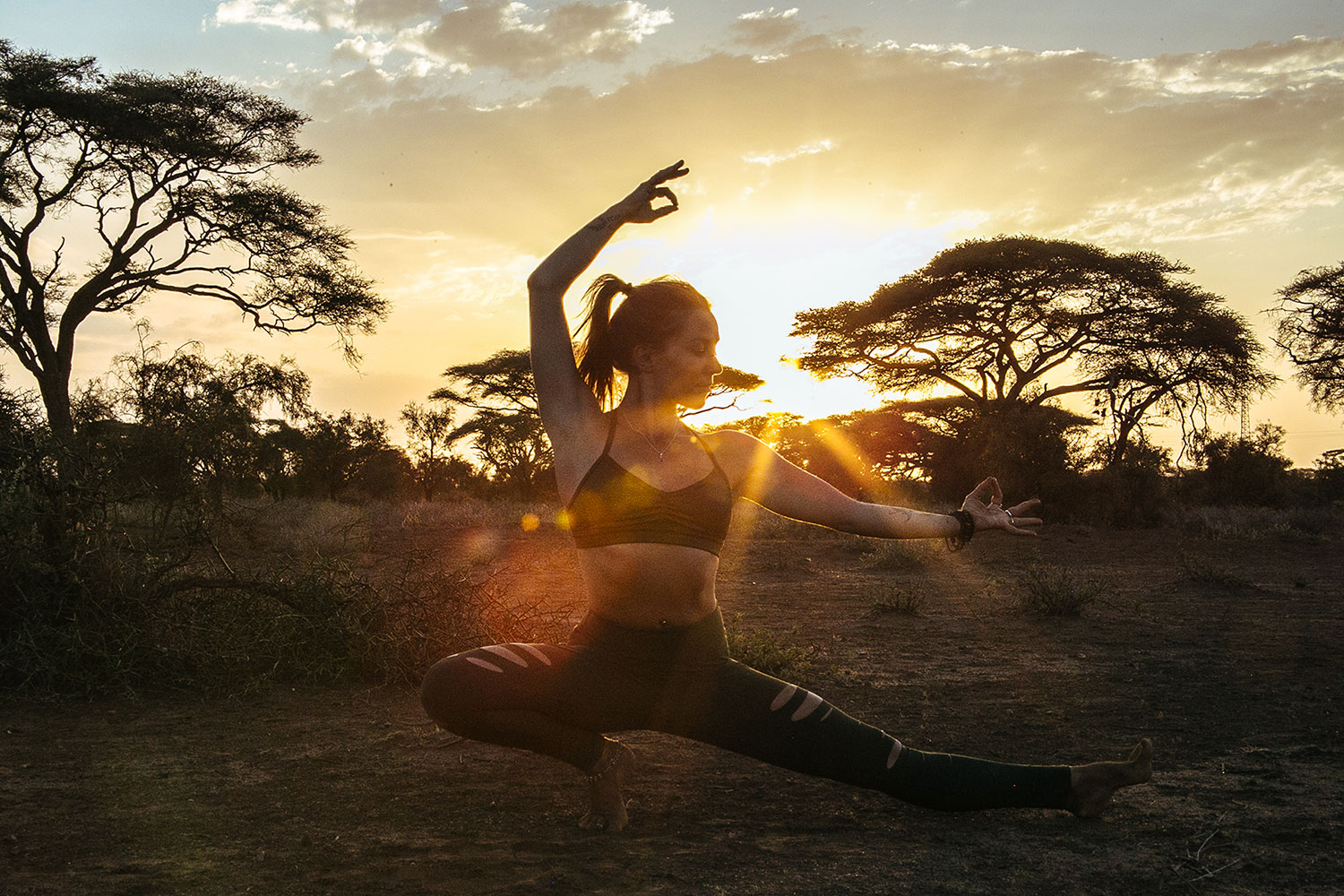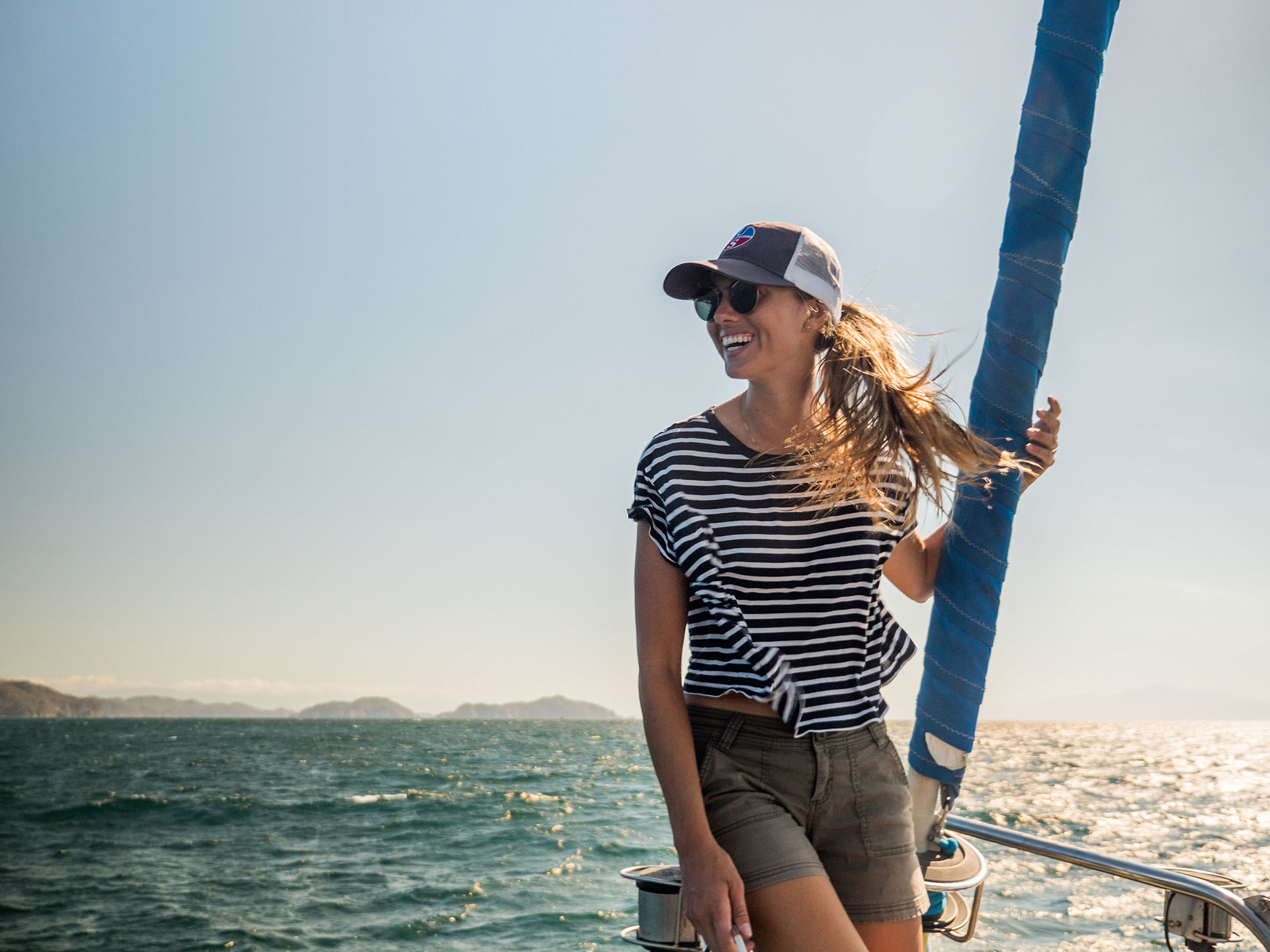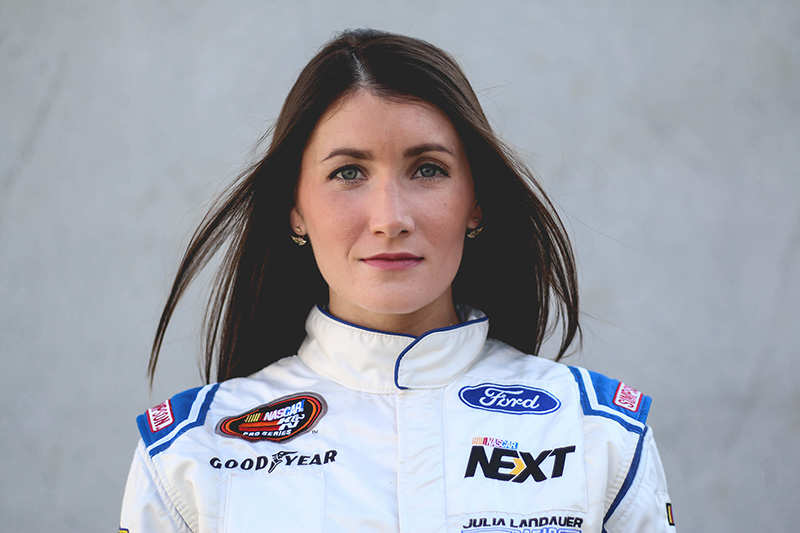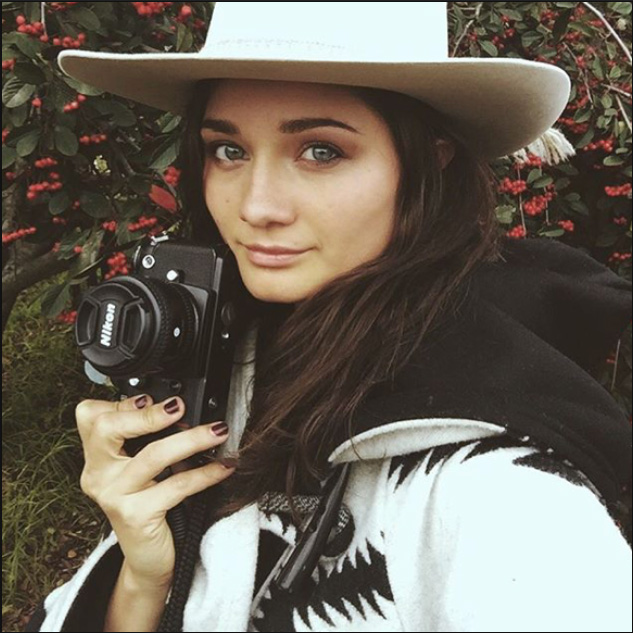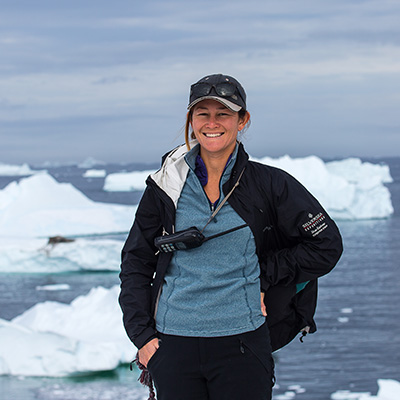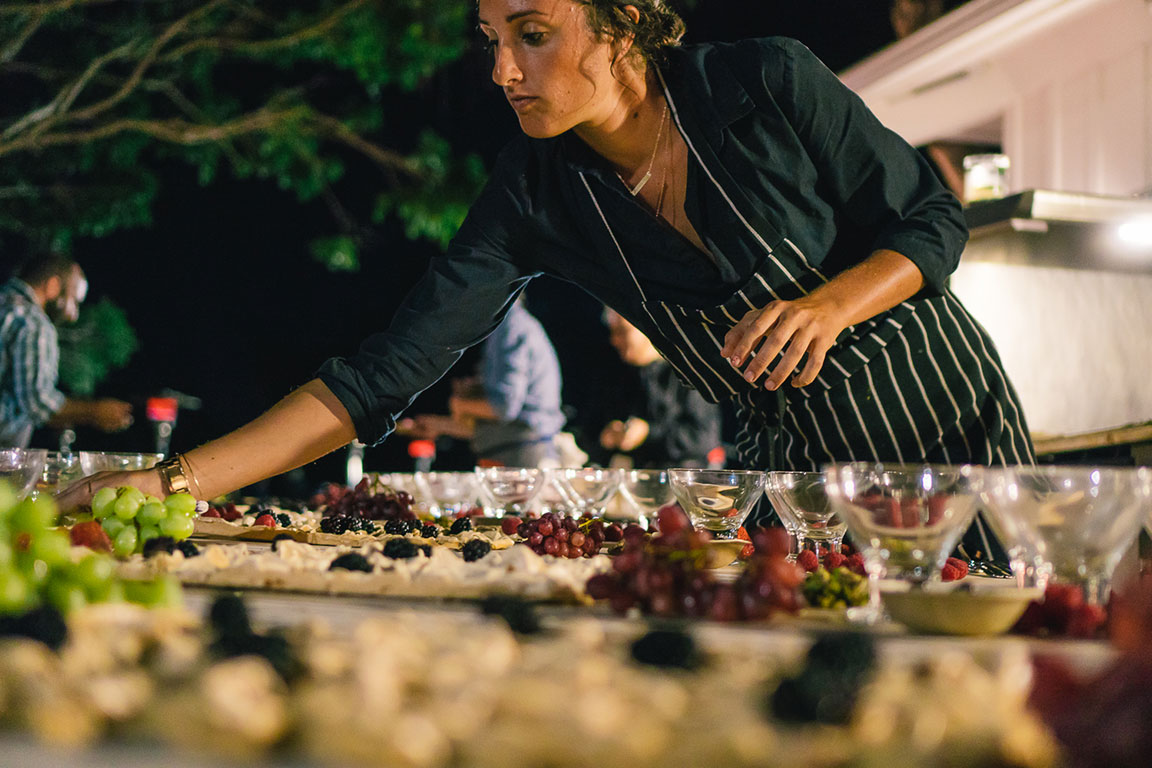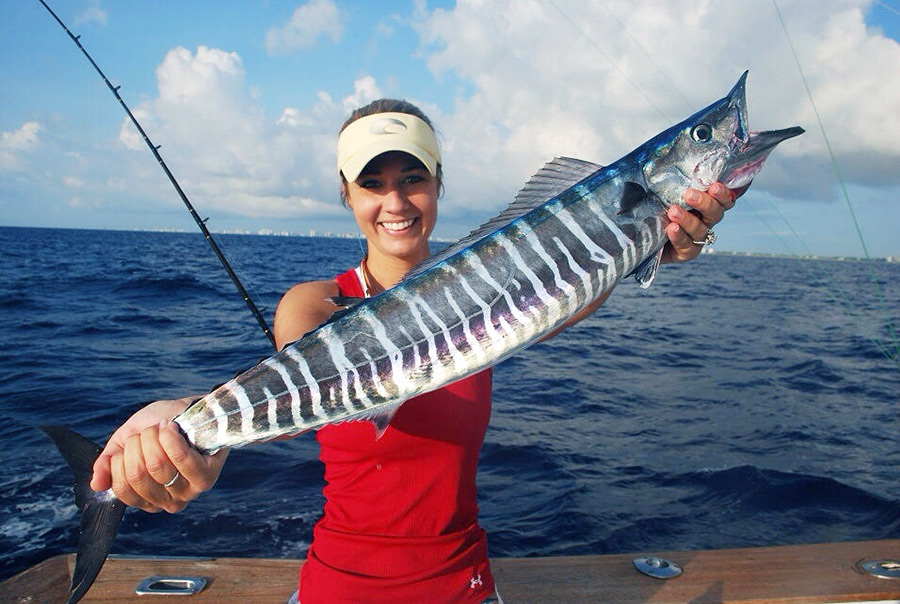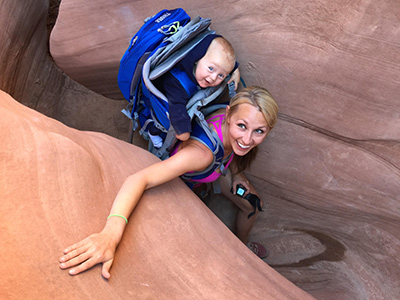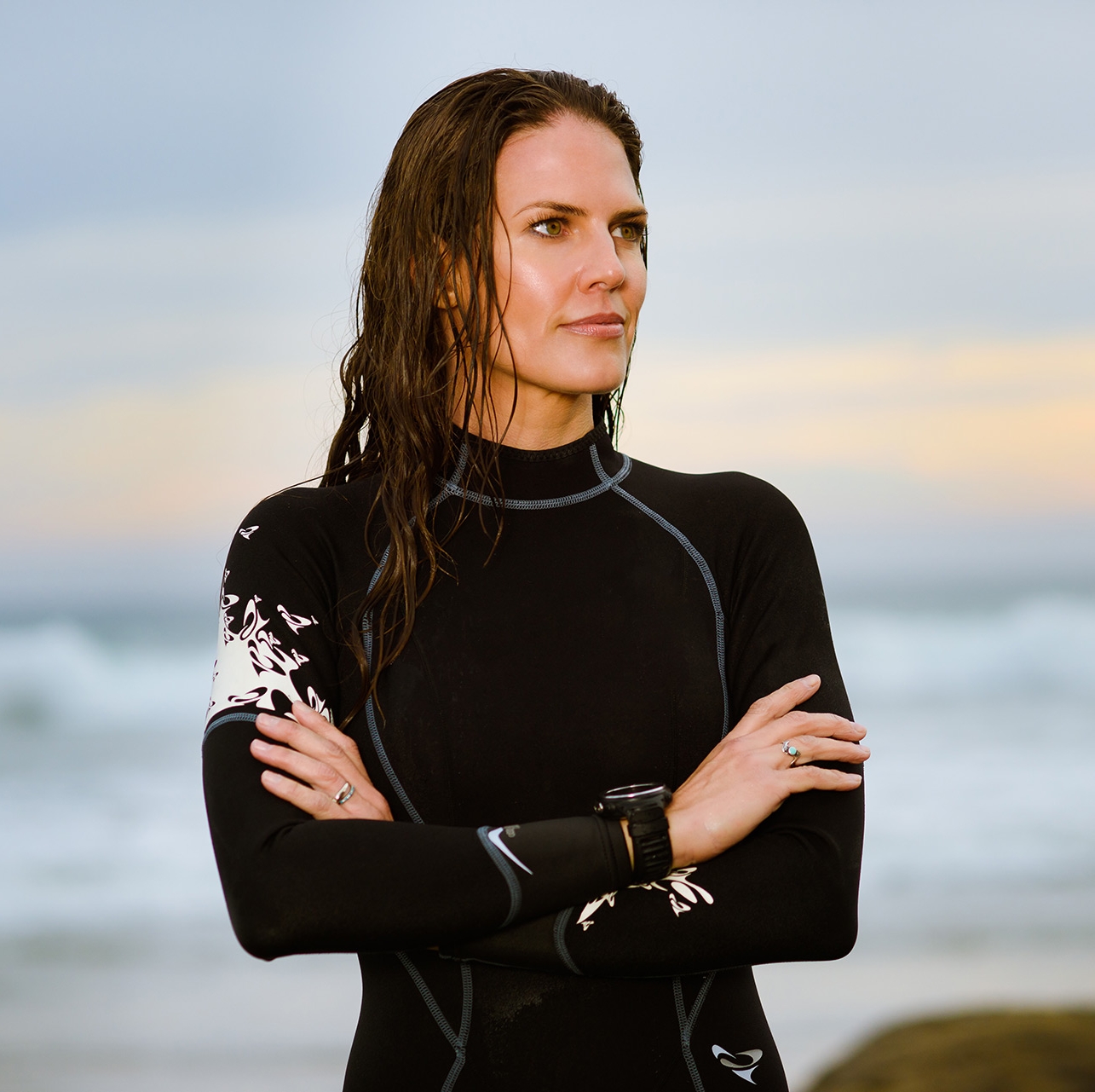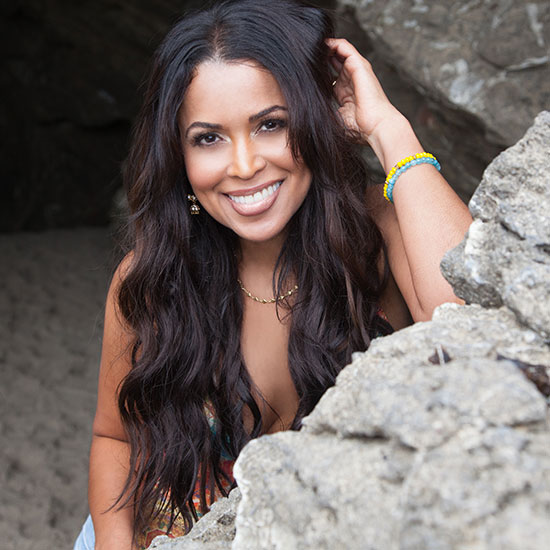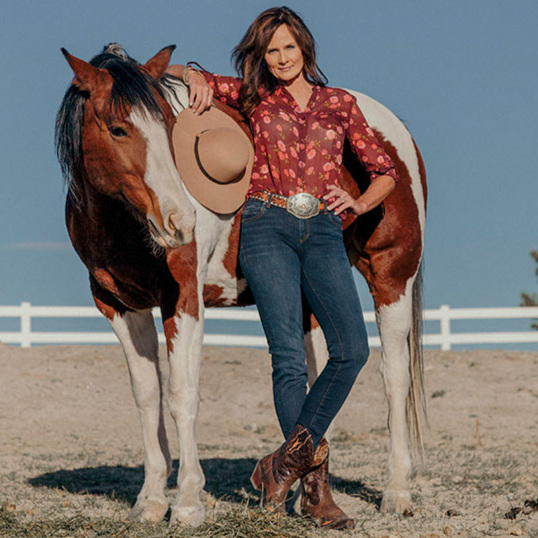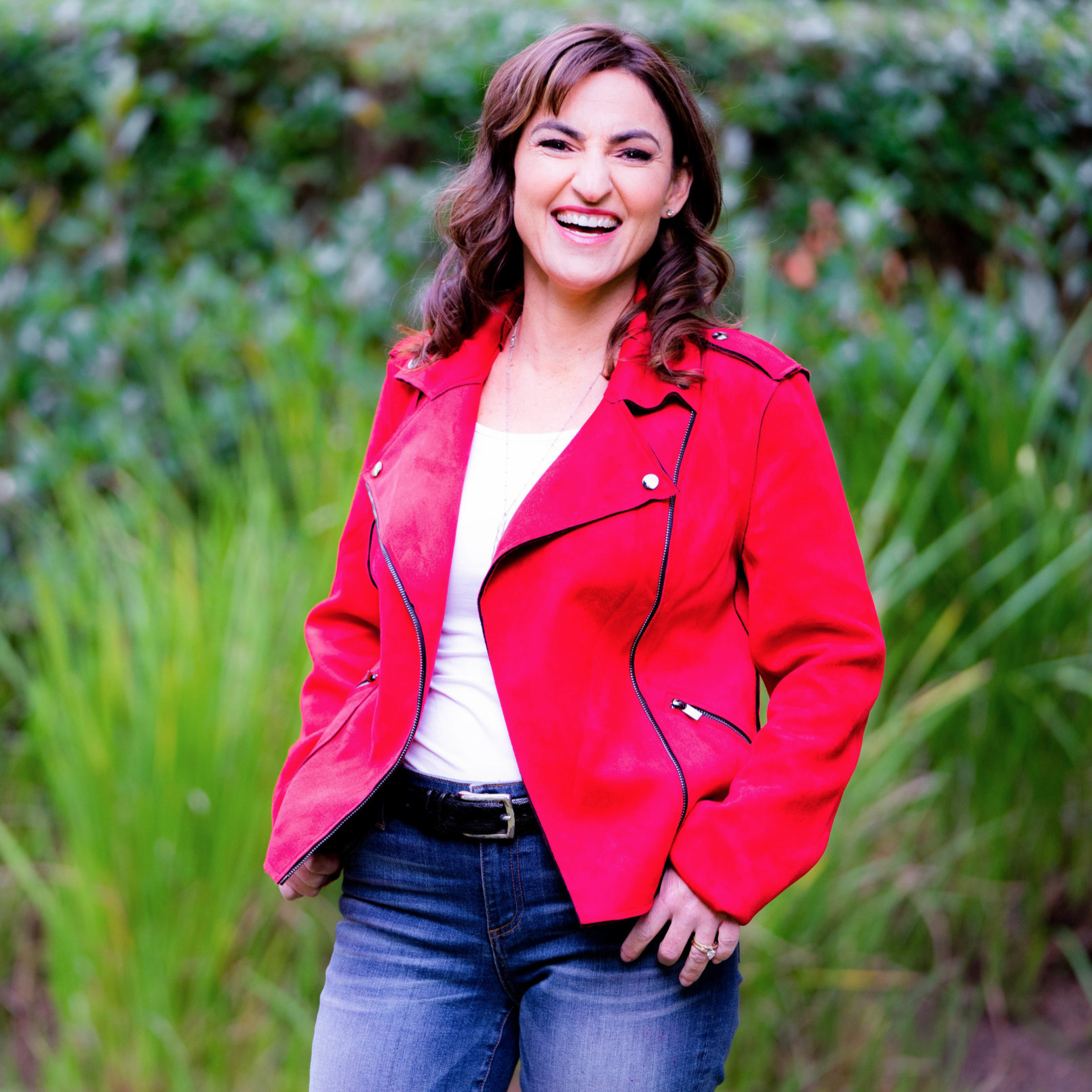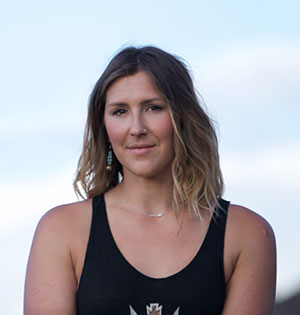JEN HUDAK
FEARLESS PURSUIT
FREESTYLE-SKIER TURNED LIFE COACH JEN HUDAK
IT TOOK JEN HUDAK a dozen years, nearly as many surgeries, a family heartbreak and a career change to chase down the definition of success. But the freestyle-skier-turned-life-coach gets it now: it was within her all along.
“I used to think you win and everyone thinks you’re amazing, and then you’re worth something. I had it backwards, I suppose,” she says quietly, as if each time she remembers that nugget of wisdom she feels it deep in her bones all over again.
A quick internet search of the 32-year-old, who lives outside Park City, Utah with her husband Chris and their two dogs, reveals a long and impressive list of accolades. She’s an X Games Champion, a 4-time U.S. National Halfpipe Champion, 2-time World Champion and one-time Olympic contender. Not bad for the kid whose father taught her how to ski in her driveway.
“I grew up in Connecticut, but when I was about 18-months-old my parents bought a cabin in Vermont, in a pretty remote area. You had to trek on some dirt roads to get there. It was a really magical place to go,” she remembers.
Jen doesn’t remember not knowing how to ski, and by age 12 she was competing in mogul competitions. She joined a freestyle team at Okemo Mountain Resort in Vermont, and soon her skiing career was taking off faster than she could fly off a halfpipe. Her life, she says, revolved around sports.
“I had a lot of energy as a child, and I felt sports was an area where I was praised for releasing my energy. As opposed to a classroom, where that didn’t go over as well,” she laughs. “It’s an area where I received praise. My sister always received praise in academics. I later learned that I was smart, too, but it took a while to get there.”
Skiing the halfpipe, on which Jen built her career, came naturally. Youth has a way of blurring the awareness that anything can go wrong, and it was in that grey area between recklessness and the illusion of control that she thrived.
“When people see athletes compete in action sports, they think we’re fearless. We’re not. If we’re fearless, we wouldn’t last very long. The fear is what keeps you safe and leads to longevity in the sport. But your ability to manage fear, and take action despite it, is really what separates people in the sport.”
By 2010 and 2011, Jen had mastered that ability to manage her fear. Combined with being in her physical peak shape, she was at the top of the mountain, literally and figuratively. The wins and awards poured in. Her results spoke for themselves. Her dreams, it would seem, were coming true. But it was during this applause-worthy period in her life that she took the crash that would change the course of her entire career. Medically, the accident may not have been considered her worst: her injuries consisted of a dislocated shoulder, a concussion, and a sprained MCL, the medial collateral ligament, one of the four main ligaments that stabilize the knee joint. Surgery was not required. She rehabbed and recovered just fine.
What changed was her mindset.
“It was the first time I felt out of control while I was crashing,” Jen remembers. “Normally I can think back, how could I have done that differently for a different outcome? The dynamic didn’t feel the same. We only have so much control, and there’s another force at play all the time. But I had either been deluding myself to that for a while or I didn’t care.”
And it was during that time two fellow halfpipe competitors crashed in separate incidents. One of them, someone she considered a friend, died from those injuries. It was, she says, a heavy time that opened her eyes to the risks she was taking, and more pointedly, the why behind her desire to keep doing it.
“I thought that winning X Games would make me feel like I was on top of the world like, ‘I can die now, all is well.’ But all it made me do was want to do it again. To prove my worth.”
Even then, despite the growing pit in her stomach, Jen didn’t stop skiing. It wasn’t until her first Olympic qualifier three years later, when she tore the acl in her other knee, that she knew her dream was truly done.
To Jen Hudak, back then, retirement equaled failure.
But contemplating her performance on the slopes wasn’t all that was dominating Jen’s thoughts. At the end of the 2009/2010 season, her “best” season, Jen’s parents had shared with her the news that her father had been diagnosed with leukemia, an illness he would go on to battle for five years. He died two months after Jen competed in her last halfpipe event. Achingly, the loss of her ski career came at the same time as the loss of her father, a longtime professor of computer science at Yale University with whom Jen was very close.
“We shared a lot. There were some soul-level parallels with us. He was a brilliant person, but if you asked people about my dad, they’d say he was the kindest, warmest person, so inviting. Being in his presence you felt comforted,” she remembers.
And though grief-stricken, Jen says something profound happened at his memorial service, something that eventually nudged her onto her life’s path. Instead of glowing stories from academia about a pioneer of computer science at one of the nation’s top universities, Jen listened as student after student told stories about her father she hadn’t been expecting to hear.
“They were all talking about how he’d impacted their life, how he helped them, how he made a difference in their lives,” she says, pausing for a moment, choking back a sob welling in her throat. “It was the things my Dad did outside his career that made an impact. And that gave me the courage to hang up the hat. I knew there was a bigger journey for me.”
Jen calls the next phase of her life “disorienting.” Still feeling as though she had failed by not making the Olympic team and unsure about what to throw herself into next, Jen studied psychology and business and took odd jobs, one of which was driving a beer cart on a golf course.
“I remember one of the Park City ski teams was doing a fundraiser on the golf course. And here I was, a 5-time X Games medalist and two-time world champion, and I was serving them beer. And it felt so shameful, back then.”
She thinks of that incident a bit more fondly now, understanding she was taking the necessary steps to get her life on track.
Later, Jen would land a job at an affiliate marketing company based in Park City, and she started working with a nonprofit group called SheLift, an organization founded by her friend Sarah Herron. It aims to empower women and girls with disabilities through outdoor retreats. Jen signed on as a ski mentor. Then, Sarah hired a life coach for the program.
“Something inside of me tensed up. It was this possessive sort of, ‘No, I want to be the life coach for SheLift!’ And then I thought, Oh. Life coaching. Huh.”
Suddenly, it was as if she was standing in the middle of snow globe, all the swirling pieces of her life landing gently before her. Dominating the world of competitive sports was only the start. Jen was also armed with a fascination of the intricacies of mind, specifically what it takes for people to achieve greatness. On top of that, this driven and well-spoken woman with a passion for helping others is so deeply empathetic she regularly turns strangers into friends. It wasn’t long before her life coaching business was born.
We talk about the idea of moving forward, whatever that might mean to someone listening to her message.
“The first step is making sure that you have a compelling reason to move through the fear. What is it you’re going to find on the other side? Figure out whether you like your compelling reason to move forward.”
And then, out pops the sentiments Jen Hudak may have been born to share, what seems to be words she has lived by and now gladly shares with anyone who needs to hear them.
“People think they need confidence, when in reality, they need courage. And exercising courage feels really uncomfortable. We’re so afraid of failure, because for so many of us, failure equals death. But ask yourself about the worst-case scenario. What is the worst thing that can happen? If you try it and it doesn’t work, do you want to try it again? Try it in a different way?”
We create problems for ourselves by the thoughts we choose, she explains. The way we feel about our lives is based on stories we tell ourselves. But most of the time it’s not true, and we can choose something different.
What Jen is choosing these days is lots of time outdoors in the mountains, her self-described Sunny Space, biking and skiing and hiking, and spending time with husband Chris and their dogs. She is also working on a podcast with her teammate Kristi Leskinen, from the television show The Amazing Race (the pair competed together on the CBS show’s 30th season in 2017). The podcast is called “Balanced Pursuits,” a way for them to tell the stories of people who are living multi-passionate lives combining work & play.
Jen may fit that description, too. She has figured out what she considers to be the key to living well: understanding that neither success nor fulfillment are measured in end results.
“My entire life, I believed my worth was based on external achievements. They are truths about my reality, and I can feel prideful about them now, but only because I recognize my own inherent worth.”
Something tells me her father would be incredibly proud to hear that.
BY JULIE YELEN
Photo Credits
Scott Markewitz (Halfpipe)
Ashley Barker (Back Country Ski Shot, Group of Skiers)
Jay Dash (Mountain Biking)
Sarah Ann Brunson (Portrait with Dogs)

